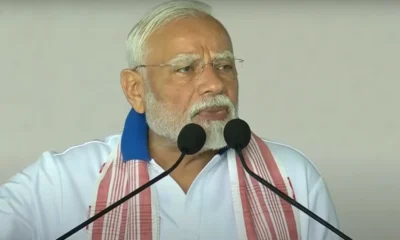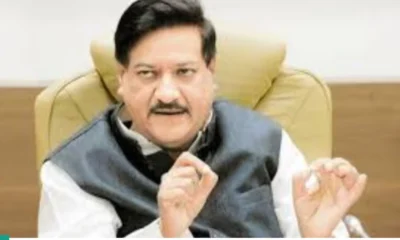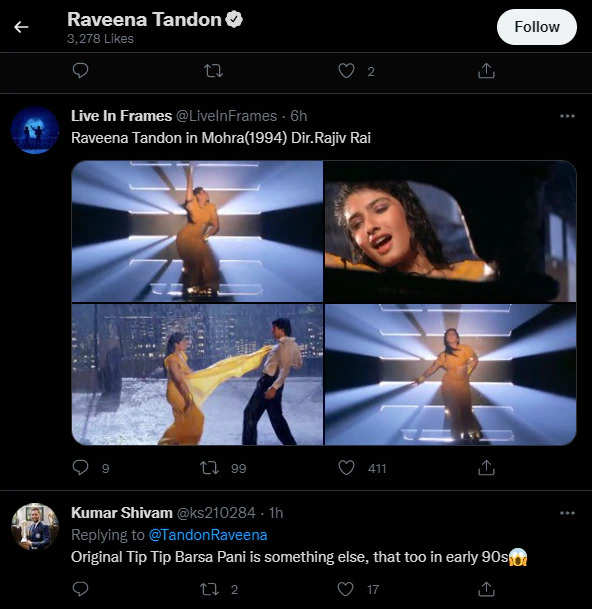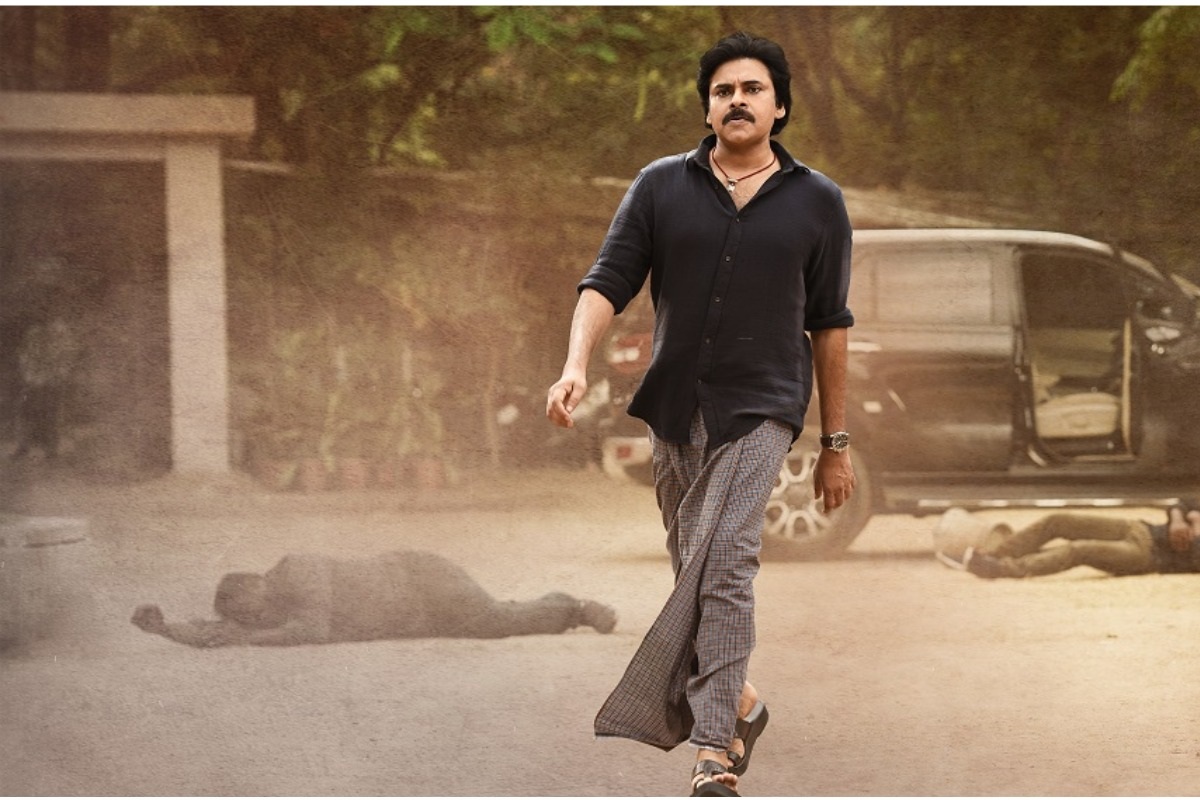[vc_row][vc_column][vc_column_text]Highlighting the use of digital technology as an enabler for the citizen and for more efficient governance, Prime Minister Narendra Modi on Thursday also cautioned against cyber security threats and the need to ensure that “vulnerable sections of society do not fall prey to the evil designs of cyber criminals”.
Inaugurating the fifth edition of the Global Conference on Cyber Space or GCCS in the national capital, PM Modi said, “Alertness towards cyber-security concerns should become a way of life,” and called on nations to take responsibility to ensure that “the digital space does not become a playground for the dark forces of terrorism and radicalisation”. Information sharing and coordination among security agencies is essential to counter the ever-changing threat landscape, he added.
Referring to the issue of privacy in this context, he said, “Surely, we can walk the fine balance between privacy and openness on one hand, and national security on the other. Together, we can overcome the differences between global and open systems on one hand, and nation-specific legal requirements on the other.”
Observing that the theme of the Conference, ‘Secure and Inclusive Cyberspace for Sustainable Development’ also highlights the importance of securing this vital asset for mankind, he said, “The global community needs to approach the issue of cybersecurity with confidence, as much as with resolve. Cyber-space technologies must remain an enabler for our people.”
The prime minister also underlined how cyber-space transformed the world over the last few decades, from the time of “bulky mainframe computer systems of the 70s and 80s”.
“A lot has changed since then. Email and personal computers brought about a new revolution in the nineties.This was followed by the advent of social media and the mobile phone as an important vehicle of data storage and communication,” he said.
The PM dwelt upon the technological advancement made by India in the IT sector and said: “Indian IT talent has been recognized worldwide. Indian IT companies have made a name for themselves globally. Today, digital technology has emerged as a great enabler. It has paved the way for efficient service delivery and governance. It is improving access, in domains from education to health.”
Highlighting how the government was using the digital platform for the development of the people of the country, he said, “We in India give primacy to the human face of technology and are using it to improve what I call, ‘ease of living’. We are using mobile power or M-power to empower our citizens. Through better targeting of subsidies, the JAM trinity has prevented leakages to the tune of nearly ten billion dollars so far.”
“Today, a farmer can access a variety of services, such as soil-testing results, expert advice, and a good price for his produce, at the click of a button. Digital technology is therefore contributing to increased farm incomes,” he said.
“A small entrepreneur can register on Government e-Marketplace & bid competitively for the supply of goods to Government. Pensioners no longer need to present themselves in front of a bank officer to provide proof of life. Citizens of India are increasingly adopting cashless transactions,” he added.
He said India is using the digital domain to facilitate participative governance, or Jan Bhagidari. “When we assumed office in May 2014, many people, particularly youngsters expressed a keen desire to share their ideas and work for the nation. It is our firm belief that there are millions of Indians, whose transformative ideas can go a long way in taking India to new heights,” he noted.
This, he said, was behind the launch of the citizen engagement portal, MyGov. “This platform enables citizens to share their thoughts and ideas on important issues. In many key policy areas, we received thousands of valuable suggestions. Many logo and emblem designs for various Government initiatives today, are the result of crowd-sourcing, and competitions on MyGov. In fact, even the official app for the Prime Minister’s Office, is the result of a competition floated on MyGov, which received brilliant responses from youngsters. MyGov is a prime example of how technology strengthens democracy,” he said
He described how, in governance and decision making, a cyberspace based platform, called PRAGATI or Proactive Governance for Timely Implementation. PRAGATI (Hindi for ‘progress’) has helped break unnecessary silos in government functioning, improved focused decision-making.
“Sitting in our respective offices, aided by the cyber world, we discuss and resolve important governance issues. I am happy to share with you that the PRAGATI sessions have resulted in faster decision-making, through consensus, in the larger interest of the nation. PRAGATI has put back on track infrastructure projects worth billions of dollars which were stuck in red-tape,” said the PM.
He talked about his own Narendra Modi Mobile App which, he said, has deepened his connect with citizens.
He announced the launch of the UMANG Mobile App, “which will provide over a hundred citizen-centric services catered for at the back-end by many different departments of the Union and State Governments. “This integrated approach will add an automatic layer of “peer performance pressure”, in the working of these departments,” he said.
GCCS 2017 in India is the biggest ever cyber event of its kind. Including about 35 run-up events, more than 10000 delegates from more than 123 countries are expected to participate in person.
Starting from London in 2011, the second GCCS was held in 2012 in Budapest with focus on the relationship between internet rights and internet security, which was attended by 700 delegates from nearly 60 countries. The third edition of GCCS was held in 2013 in Seoul with the commitment to Open and Secure Cyberspace. The fourth version GCCS 2015 was held on April 16-17, 2015 in The Hague, Netherlands which saw participation from 97 countries.
Themed on Cyber4All: A Secure and Inclusive Cyberspace for Sustainable Development, this is the fifth edition of GCCS wherein international leaders, policymakers, industry experts, think tanks and cyber experts will gather to deliberate on issues and challenges for optimally using cyberspace.[/vc_column_text][/vc_column][/vc_row]

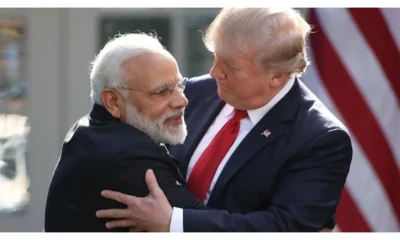
 Latest world news20 hours ago
Latest world news20 hours ago
 India News20 hours ago
India News20 hours ago
 India News19 hours ago
India News19 hours ago
 India News19 hours ago
India News19 hours ago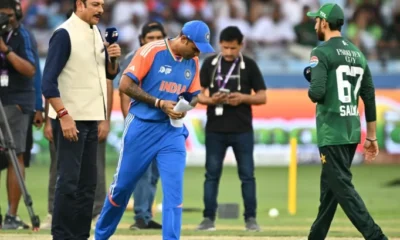
 LATEST SPORTS NEWS19 hours ago
LATEST SPORTS NEWS19 hours ago
 India News15 hours ago
India News15 hours ago
 India News11 hours ago
India News11 hours ago
 India News11 hours ago
India News11 hours ago




